When FC Barcelona narrowly avoided a one-year suspension from the UEFA Champions League in October 2025, fans breathed a sigh of relief—but the real story wasn’t the escape. It was how close they came to collapse. President Joan Laporta revealed at the club’s General Assembly that UEFA had initially demanded an €80 million fine and a ban for violating financial fair play rules tied to the club’s controversial sale of 25% of its TV rights for €600 million. After tense negotiations, the penalty was slashed to €15 million with no sporting sanctions. But as Laporta put it, this wasn’t a rescue—it was a bandage on a wound that started under former president Josep Maria Bartomeu. The deal, he insisted, was a "temporary transfer of assets," not a false capital gain. By 2050, those rights revert to the club, bringing in roughly €35 million a year. Still, the damage lingers.
Barcelona’s Financial Tightrope
The €600 million deal, brokered with a private equity fund, kept Barcelona afloat during their deepest financial crisis since the 2000s. But it came at a cost: the club’s balance sheet now depends on a future that’s far from guaranteed. While La Liga’s financial controls forced them to cut wages and delay signings, the long-term burden of debt repayment looms. Analysts point out that no other top European club has ever sold such a large portion of its media rights—making Barcelona’s move a radical, possibly reckless, gamble. "They didn’t fix their model," said one former financial officer who spoke anonymously. "They just pushed the reckoning 25 years down the road."
Juventus: Debt, Draws, and Disarray
Meanwhile, Juventus is spiraling in plain sight. Their 2024/25 financial report, analyzed by The Swiss Ramble in late October 2025, showed gross debt climbing to €339 million—up €60 million from the previous year. Bank loans alone jumped from €51 million to €84 million. Revenue rose 18% to €440 million, thanks largely to player sales—€90 million profit, up from €23 million. But commercial income cratered by €26 million after losing their shirt sponsor. No major brand wants to be tied to a club that can’t win. And win they haven’t. Eight draws in 15 matches. Two losses in the first week of November. On November 10, 2025, Ivan Juric was fired. The club’s defense, once rock-solid, now concedes 1.80 goals per match—far above their expected goals allowed. "Fortune has completely vanished," noted The Swiss Ramble. And the bills? Calcio e Finanza reported Juventus still owes nearly €30 million on existing contracts. They’re not just losing games—they’re losing money on every player they keep.
Former director Beppe Marotta, who left in 2018 after Cristiano Ronaldo’s arrival, once built Juventus on discipline and character. "Every signing was vetted," recalled The National’s columnist. "Now? It’s a lottery."
Liverpool’s Unraveling
At Liverpool, the decline feels personal. The defending Premier League champions, who lifted the trophy just two seasons ago, now sit eighth—having lost five of their last six league matches and seven of ten across all competitions. Manager Arne Slot is under siege. Key players like Mohamed Salah, once unstoppable, now look tired, hesitant. New signings—€60 million midfielder Florian Wirtz and £70 million striker Alexander Isak—have delivered almost nothing. Wirtz hasn’t scored in the league. Isak has missed half his chances and missed three weeks with injury. A players-only meeting in late October, meant to reset morale, reportedly did little. The shadow of Diogo Jota, who died suddenly in the summer, still hangs over the squad. "They’re not broken," said a former Liverpool academy coach. "They’re grieving. And grief doesn’t win trophies."
Why the League Won’t Fix It
On November 21, 2025, Premier League clubs voted 12-7 against overhauling financial regulations for the 2026/27 season. The majority—led by clubs like Manchester City and Arsenal—argued that current rules were sufficient. Critics called it a betrayal. "If Barcelona and Juventus can’t manage their finances," said economist Dr. Eleanor Voss, "and Liverpool can’t manage their squad, what does that say about the system?" The lack of reform means clubs like Juventus will keep overextending, and clubs like Liverpool will keep chasing talent without strategy.
What’s Next for European Football?
Barcelona’s survival is temporary. Juventus needs a new president, not just a new coach. Liverpool needs soul, not signings. The common thread? All three clubs lost their way after the departure of leaders who understood balance—between spending and sustainability, between stars and squad depth, between emotion and execution. Pep Guardiola once said, "Great teams must refresh to maintain hunger." But hunger without discipline becomes chaos. And chaos, in football, is just another word for decline.
Frequently Asked Questions
How did Barcelona avoid the Champions League ban?
After UEFA proposed an €80 million fine and a one-year suspension for financial rule violations tied to their TV rights deal, Barcelona negotiated a reduced penalty of €15 million with no sporting sanctions. The club argued the €600 million deal was a temporary asset transfer, not a capital gain, and that the rights would revert to them in 25 years. UEFA accepted this explanation, avoiding a historic ban but leaving long-term financial risks unresolved.
Why is Juventus still losing money despite higher revenue?
Though Juventus’ revenue rose to €440 million in 2024/25, their "other expenses" jumped €25 million to €161 million, mostly due to administrative costs, legal fees, and contract buyouts. Player amortization and wages fell, but those savings were swallowed by rising operational costs. They also still owe nearly €30 million on existing contracts, and without a shirt sponsor, commercial income remains weak—creating a structural deficit that revenue gains can’t fix.
What’s wrong with Liverpool’s squad under Arne Slot?
Liverpool’s attack has lost rhythm. Mohamed Salah, 33, looks physically drained and less decisive. New signings Florian Wirtz and Alexander Isak haven’t delivered—Wirtz has zero league goals, Isak has missed 78% of his chances. The team lacks midfield control, and the emotional toll of Diogo Jota’s death has lingered. A players-only meeting failed to spark change, and Slot’s tactics, while theoretically sound, haven’t adapted to the squad’s current limitations.
Why didn’t Premier League clubs vote for financial reform?
Twelve clubs, including Manchester City and Arsenal, voted against reform, arguing current rules are adequate. They fear stricter caps could hurt their competitive edge. Critics say this reflects a lack of solidarity—wealthier clubs prioritize short-term advantage over long-term stability. With no new rules by 2026/27, clubs like Juventus and Barcelona may continue risky financial maneuvers, while mid-table teams struggle to compete.
How does Beppe Marotta’s departure relate to Juventus’ current crisis?
Marotta, who left in 2018, built Juventus on disciplined, character-driven signings—players who fit the culture as much as the system. After his exit, the club shifted toward star power over sustainability, signing aging legends and overpaying for hype. This led to inflated wages, poor squad cohesion, and a lack of youth integration. The current financial mess and tactical stagnation are direct results of abandoning Marotta’s philosophy.
Can these clubs recover in the next two years?
Barcelona’s recovery depends on the 2050 return of TV rights—too distant to help now. Juventus needs a new president and a complete rebuild of their recruitment strategy. Liverpool must either overhaul Slot’s coaching staff or accept a multi-year rebuild. All three need radical honesty. Without it, the gap to the elite—Real Madrid, Manchester City, Bayern Munich—won’t close. It’ll widen.

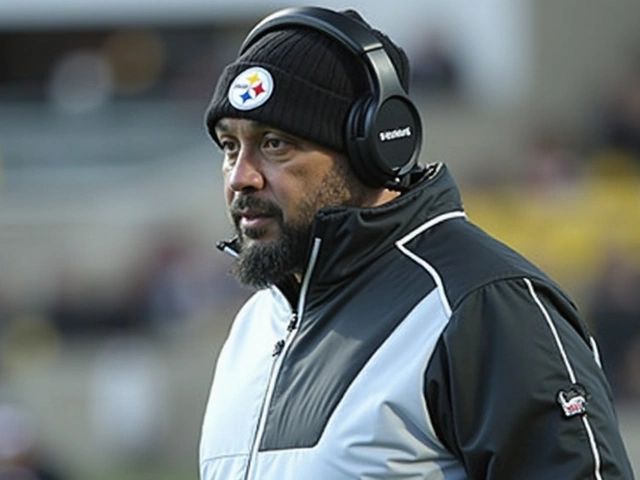
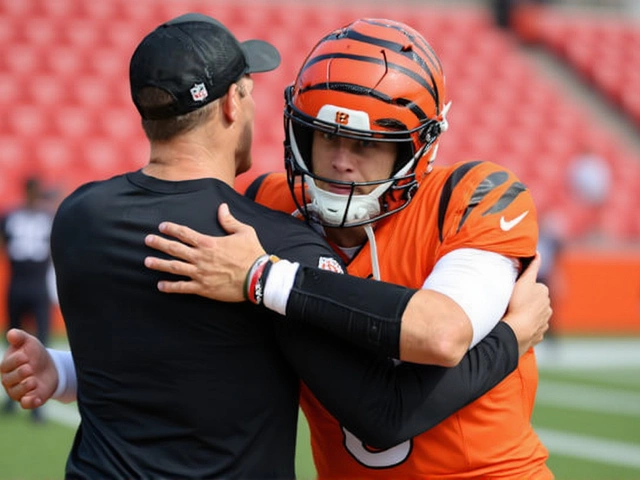
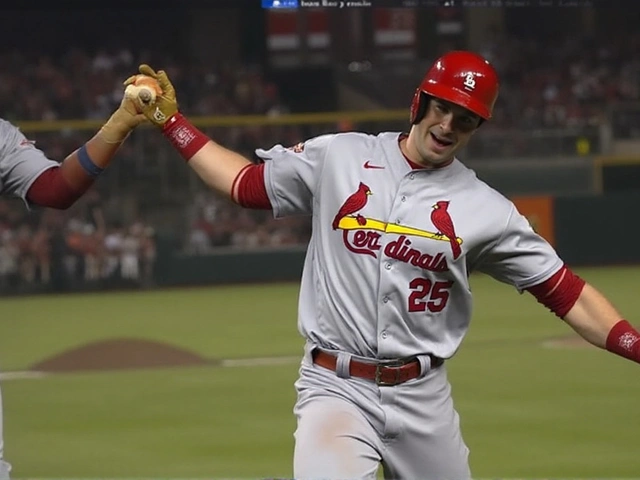
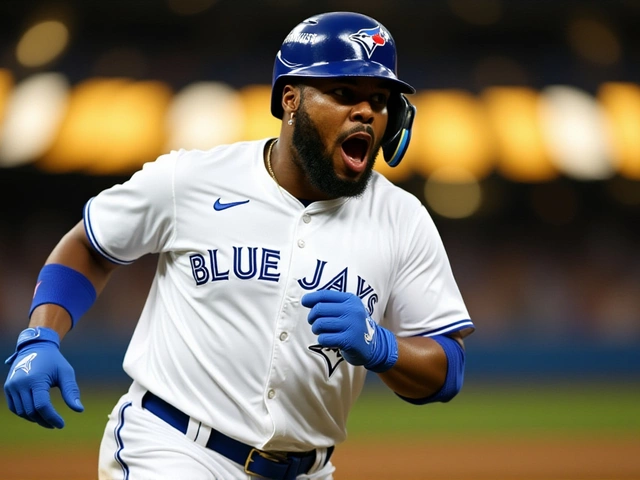
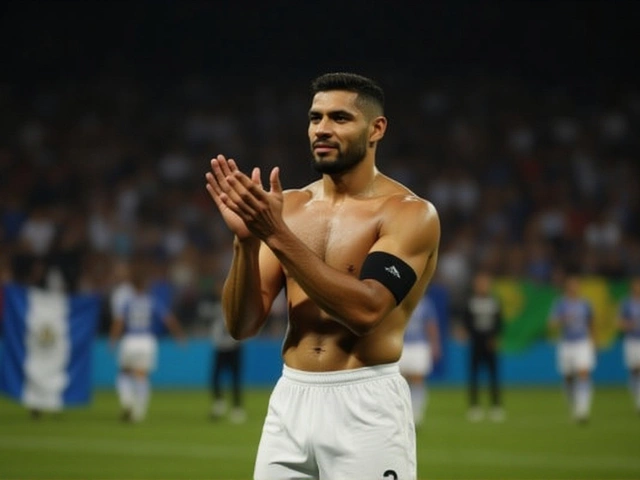
Archer Elmsley
I am a seasoned journalist with over two decades of experience writing about daily news in the United States. My passion for uncovering the truth and presenting it in an engaging manner drives my work every day. I believe in the power of information and strive to keep my readers informed with well-researched articles. When I'm not working, I enjoy exploring the great outdoors and capturing moments through my lens.
view all posts